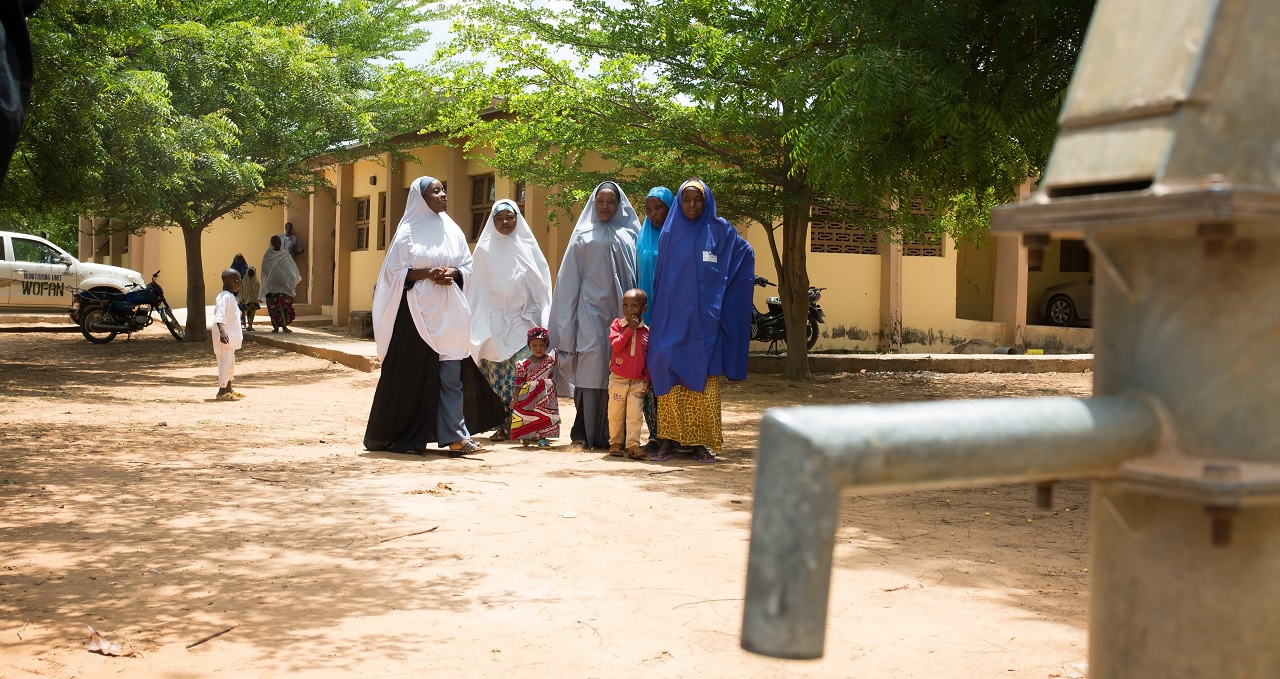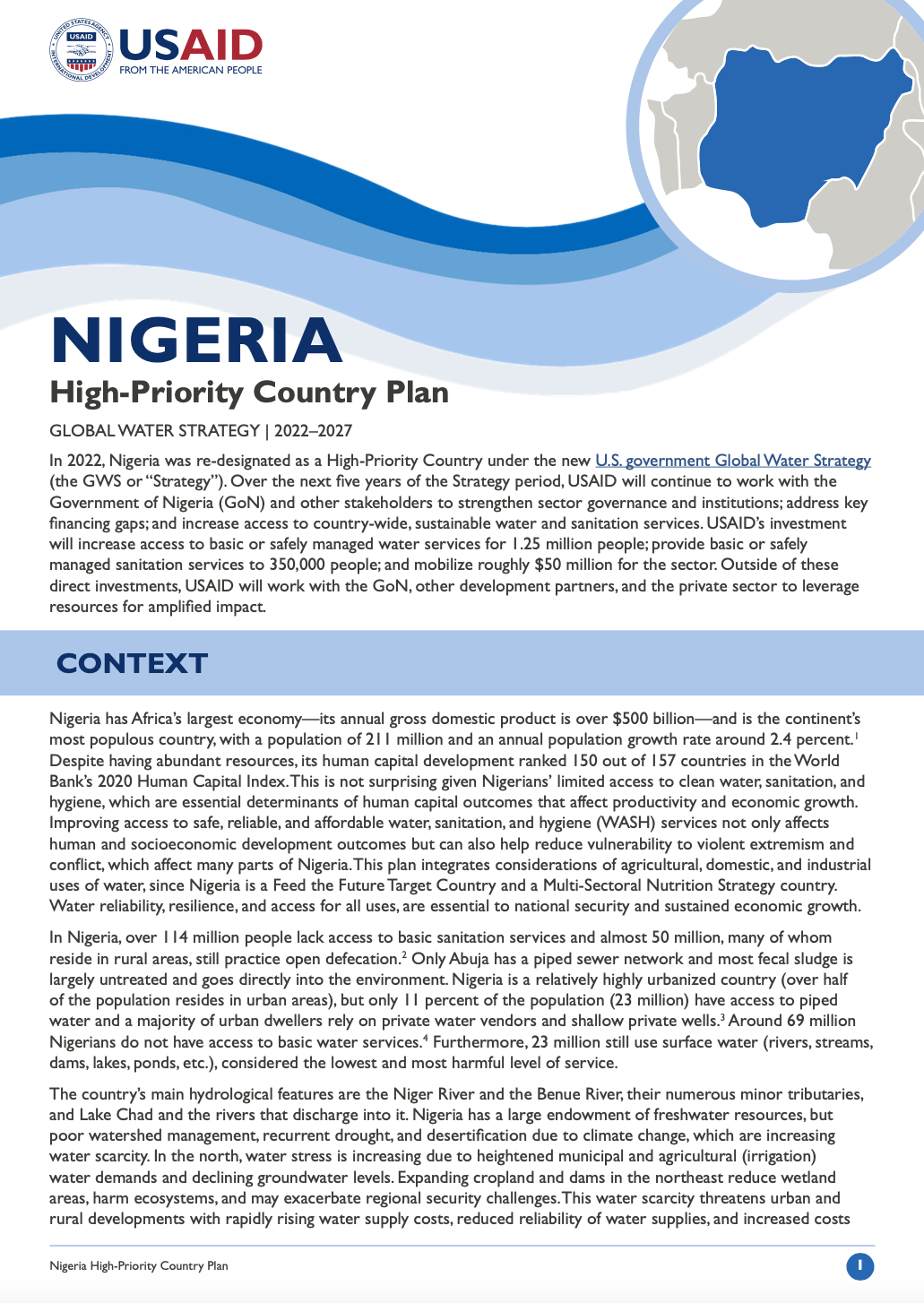Overview
In 2022, Nigeria was re-designated as a High-Priority Country. USAID is working with partners in Nigeria to:
- Increase access to basic or safely managed water services for 1.25 million people
- Provide basic or safely managed sanitation services to 350,000 peoples
- Mobilize $50 million for the water security, sanitation, and hygiene sector



